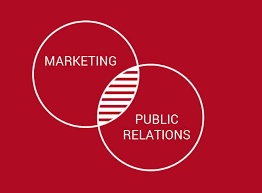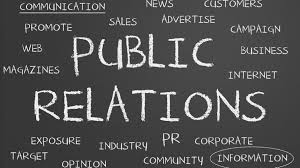Mastering the Art of Public Relations: Building Strong Relationships for Success
The Power of Public Relations in Building Strong Relationships
Public relations (PR) plays a crucial role in shaping the perception of a company or individual in the eyes of the public. It is a strategic communication process that builds mutually beneficial relationships between organisations and their audiences.
One of the key functions of PR is managing communication between an organisation and its stakeholders. This involves creating and maintaining a positive image for the company through various channels, such as media relations, social media, events, and community engagement.
Effective PR helps to establish credibility, trust, and goodwill with the target audience. By disseminating accurate information and engaging in transparent communication, companies can enhance their reputation and strengthen their relationships with customers, investors, employees, and other stakeholders.
Furthermore, PR plays a vital role in crisis management. In times of adversity or negative publicity, PR professionals step in to mitigate damage to the company’s reputation and restore public trust. Through strategic messaging and proactive communication strategies, PR helps organisations navigate through challenges while maintaining their integrity.
Another important aspect of PR is building brand awareness and thought leadership. By securing media coverage, organising events, and leveraging social media platforms, PR professionals can elevate a company’s visibility in the market and position it as an industry leader. This helps attract new customers, partners, and opportunities for growth.
In conclusion, public relations is an essential component of any successful business strategy. By focusing on building strong relationships with stakeholders, managing reputation effectively, and enhancing brand visibility, PR can drive long-term success for organisations across industries.
Essential FAQs on Public Relations: Understanding Its Role, Challenges, and Future Trends
- What is public relations and why is it important?
- How does public relations differ from advertising?
- What are the key responsibilities of a public relations professional?
- How can public relations help improve a company’s reputation?
- What role does social media play in modern public relations practices?
- How do you measure the success of a public relations campaign?
- What are some common challenges faced in the field of public relations?
- How can companies use public relations to manage crises effectively?
- What trends are currently shaping the future of public relations?
What is public relations and why is it important?
Public relations, often referred to as PR, is a strategic communication process that aims to build and maintain positive relationships between an organisation and its target audience. It involves managing the flow of information between the company and various stakeholders, including customers, employees, investors, media, and the general public. Public relations is important because it helps companies shape their public image, establish credibility and trust, manage reputation effectively, and enhance brand visibility. By engaging in transparent communication, disseminating accurate information, and building meaningful connections with stakeholders, PR plays a crucial role in influencing public perception and driving long-term success for businesses.
How does public relations differ from advertising?
Public relations and advertising are two distinct communication disciplines that serve different purposes. While advertising involves paid promotional messages that are controlled by the company, public relations focuses on earning media coverage and building relationships with various stakeholders through strategic communication efforts. Unlike advertising, which is typically more overt in promoting products or services, public relations aims to create a positive image for the company by leveraging earned media coverage, managing reputation, and engaging with the public in a more organic and authentic manner. In essence, public relations is about building credibility and trust through storytelling and relationship-building, whereas advertising is about direct promotion through paid channels.
What are the key responsibilities of a public relations professional?
One of the frequently asked questions about public relations is, “What are the key responsibilities of a public relations professional?” Public relations professionals are tasked with managing the reputation and communication efforts of an organisation. Their key responsibilities include developing and implementing communication strategies, building relationships with media outlets, creating compelling content for press releases and social media platforms, handling crisis communication effectively, organising events to promote the company’s image, and monitoring public perceptions to adjust strategies accordingly. Overall, public relations professionals play a critical role in shaping how a company is perceived by its target audience and stakeholders.
How can public relations help improve a company’s reputation?
Public relations can significantly enhance a company’s reputation by strategically managing communication with its stakeholders. By crafting compelling narratives, disseminating positive news stories, and engaging in transparent dialogue, PR professionals can shape the perception of the company in a positive light. Through proactive media relations, social media engagement, and community outreach, public relations efforts can highlight the company’s values, achievements, and contributions to society. By building trust, credibility, and goodwill with the public, public relations helps to establish a strong reputation for the company, ultimately leading to increased brand loyalty, customer trust, and overall success in the market.
What role does social media play in modern public relations practices?
In modern public relations practices, social media plays a crucial role in enhancing communication and engagement with target audiences. Social media platforms provide PR professionals with direct access to a vast online community, allowing them to share information, engage in conversations, and build relationships in real-time. By leveraging social media channels effectively, PR practitioners can amplify brand messaging, monitor conversations about their organisation, and respond promptly to feedback or inquiries. Social media also offers a platform for showcasing thought leadership, promoting events, and disseminating news updates quickly and efficiently. Overall, social media has become an indispensable tool for modern PR strategies, enabling organisations to connect with their audiences on a more personal level and adapt to the dynamic digital landscape.
How do you measure the success of a public relations campaign?
Measuring the success of a public relations campaign involves evaluating various key performance indicators to determine its impact and effectiveness. One common method is through media monitoring and analysis, which tracks the quantity and quality of media coverage generated by the campaign. This includes measuring reach, sentiment, tone, and key message penetration in the press. Additionally, assessing audience engagement through metrics such as website traffic, social media interactions, and brand mentions can provide valuable insights into the campaign’s reach and resonance. Ultimately, the success of a public relations campaign is measured by its ability to achieve predefined objectives, whether it’s increasing brand awareness, shaping public perception, driving sales, or influencing stakeholder behaviour.
What are some common challenges faced in the field of public relations?
In the field of public relations, professionals often encounter common challenges that require strategic solutions. One prevalent issue is managing crisis communication effectively, as unexpected events or negative publicity can damage a company’s reputation if not handled promptly and transparently. Another challenge is navigating the evolving digital landscape and staying abreast of emerging technologies and social media trends to engage with audiences effectively. Additionally, balancing the need for creativity with the demand for measurable results poses a continual challenge in demonstrating the impact of PR initiatives on business objectives. Overcoming these challenges requires adaptability, strong communication skills, and a proactive approach to building and maintaining positive relationships with stakeholders.
How can companies use public relations to manage crises effectively?
Companies can leverage public relations to manage crises effectively by implementing strategic communication tactics that focus on transparency, timely response, and stakeholder engagement. In times of crisis, PR professionals play a crucial role in crafting and disseminating clear, consistent messaging to address the situation, mitigate negative publicity, and maintain trust with the public. By proactively communicating with stakeholders, including customers, employees, investors, and the media, companies can demonstrate accountability and a commitment to resolving the crisis. Additionally, utilising various communication channels such as press releases, social media updates, and press conferences enables companies to control the narrative and shape public perception during challenging times. Through effective crisis management strategies guided by PR expertise, companies can navigate crises successfully while safeguarding their reputation and credibility.
What trends are currently shaping the future of public relations?
One frequently asked question in the field of public relations is, “What trends are currently shaping the future of public relations?” In today’s rapidly evolving communication landscape, several key trends are influencing the future of PR. These include the increasing importance of digital and social media, the rise of influencer marketing, the emphasis on data-driven decision-making, the growing focus on diversity and inclusion in campaigns, and the integration of artificial intelligence and automation in PR strategies. By staying abreast of these trends and adapting to new technologies and approaches, PR professionals can effectively navigate the changing landscape and drive impactful communication strategies for their clients or organisations.












